The Most Influential Musical Acts You Never Have Heard Of
On any given day, mainstream radio stations may be blasting Cheap Trick or Kanye West, R.E.M. or the Goo Goo Dolls, Run DMC or Nirvana. These musical acts all have immediately recognizable sounds which are likely to populate the airwaves decades from now. To the average listener, these artists may appear reasonably original. However, all of these musicians owe an insurmountable debt to the innovative artists who preceded them.
Three acts in particular have proven to be among the most influential performers of the last 40 years. None of these musicians won Grammys, sold records by the millions, or came even close to being household names. Yet, if one were to put on a song by any one of them, the last four decades of popular music will suddenly rush forth, revealing the incalculable influence of these unheralded giants of modern music.
Gil Scott-Heron: The Prototypical Hip-Hop Artist
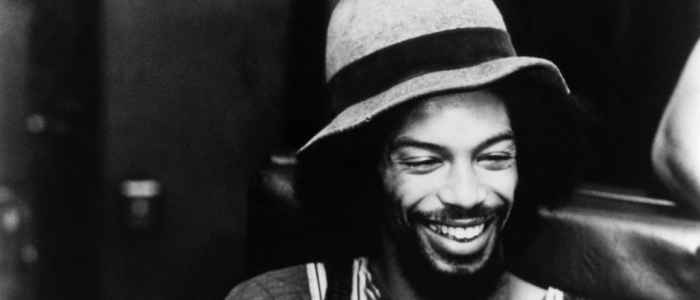
When one thinks of socially-conscious urban music, Common and Lupe Fiasco are the contemporary reference points, while older listeners may immediately mention Grandmaster Flash or Marvin Gaye. All of these answers are correct, but before Gaye bemoaned the inner city blues and Grandmaster Flash wailed that he was close to the edge, a fiery young poet and singer named Gil-Scott Heron cried about the “reparations on my soul.”
Marvin Gaye’s 1971 LP What’s Going On, while undoubtedly a raw and affecting catalogue of the nation’s social ills, seems mannered and tame compared to Heron’s incendiary 1970 debut, Small Talk at 125th and Lenox. Recorded live in a Harlem bar without an iota of overdubs, Heron spits rapid, streetwise verses about how the “revolution will not be televised,” and lambastes a U.S. government that spends millions on space travel and not a single cent on poverty in “Whitey On The Moon.” This marriage of street poetry to propulsive soul is often considered the prototype of hip-hop, and it is difficult to argue with this assertion. Countless rappers have sampled his work, with the aforementioned Kanye West being the most prominent example.
Equally true is the fact that Heron’s music inspired R&B icons to veer from love songs and delve into social commentary. What’s Going On, Stevie Wonder’s Innervisions, and Curtis Mayfield’s There’s No Place Like America Today, all bare the unmistakable stamp of Heron. While these artists largely relegated political material to one or two albums, Heron lucidly explored controversial subject matter through forty years of recordings.
The topics of his groundbreaking songs ranged from nuclear power (“We Almost Lost Detroit”), apartheid (“Johannesburg”), and the lifestyle of projects dwellers (“Get Out of the Ghetto Blues”), to the pervasiveness of alcoholism in the black community (“The Bottle”) and heroin addiction (“Home Is Where The Hatred Is.”) Heron was far from a pampered suburban rock star pretending to be a gritty urbanite; born and raised in Harlem, Heron battled substance abuse for decades, before succumbing to his heroin addiction in 2011. Despite his tragic life and often unsparing lyrics, Heron was capable of exuberance and warm, uplifting soul music; this is evident on the pulsing “Fast Lane,” the anthemic “I Think I’ll Call it Morning,” and the majestic “Rivers of Our Fathers.”
Despite such tracks as “Winter in America” receiving moderate FM airplay in the mid-1970s, Gil Scott-Heron never quite broke into the mainstream. The closest he came was in his appearance on Saturday Night Live in 1975. In 2010, Heron seemed poised on the verge of a comeback; his latest album, I’m New Here, paired a modern production with Heron’s raspy but affecting croak. This comeback was long in the making; as he remarked in an interview that year, “I’m not even a household name in my own house!” Sadly, this resurgence was to be short-lived, as Heron died to shockingly little recognition in May 2011. His legacy lives in on all music that comes straight from the streets, speaking honestly about the malignant elements of society few want to acknowledge, let alone change.
Big Star: The Bridge from The Byrds to R.E.M.
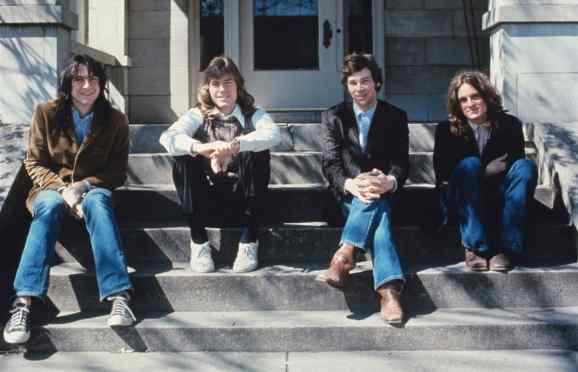
Big Star consisted of several members, but its legacy is inextricably linked with Alex Chilton, the lead singer/songwriter and protagonist of one of the most bizarre rock and roll stories ever told. By the age of 17, the Memphis-born Chilton had two Billboard Top Five songs under his belt, as his group The Box Tops scored with blue eyed-soul classics “The Letter” and “Cry Like a Baby.” Chilton’s throaty, world-weary vocals on “The Letter” were unforgettable, especially considering his youth. (Chilton attributed the grittiness of his singing to a night of binge drinking). By 1969, however, the manufactured act (akin to The Monkees) had imploded, and not a single one of Chilton’s writing contributions resulted in chart success. Chilton was not old enough to vote, yet already he experienced the sting of being a hopeless has-been.
In 1971, Chilton regrouped and formed a new band with fellow Memphis residents Andy Hummel, Chris Bell, and Jody Stephens. Unlike The Box Tops, Big Star did not aim to be overtly commercial, and they were a true crew of musicians, rather than record label-sponsored mimes. Perhaps inevitably, Big Star failed to come close to replicating The Box Tops’ chart success. Their 1972 debut, #1 Record, superficially was influenced by the jangly guitars and shining harmonies of The Beatles and The Byrds. However, the songs’ aching vulnerability and sincerity, combined with a blending of driving power chords and sweet melodies (coined by critics as “power pop”) pointed towards a fresh musical approach. Upon the initial release of #1 Record, critics raved about this clearly accomplished debut; Rolling Stone judged it “exceptionally good,” while Billboard enthused, “every cut could be a single.” Indeed, one can imagine the stunningly honest “Thirteen,” the surging “September Gurls,” and the rollicking “In The Street,” becoming radio classics in an alternate universe. (The latter did receive a new audience as the theme song for That ’70s Show).
In a mix-up that is truly stranger than fiction, Big Star’s label Stax Records failed to distribute an untold amount of copies to stores, even as increased airplay on FM station piqued the interest of potential buyers. The dying Stax, once the king of southern soul, merged with Columbia; but, instead of increasing the availability of #1 Record, the few remaining copies were removed from record shops.
Meanwhile, tensions rose between co-leaders Chris Bell and Alex Chilton, until Bell walked out during the tumultuous sessions for their follow-up, Radio City. Despite containing shimmering would-be hits like “Way Out West” and “Back of a Car,” the sophomore effort likewise failed to sell. In 1974, Big Star recorded their last album, tentatively titled Third, in a notoriously draining session that rendered the group as essentially “The Alex Chilton Band.” The sessions were aborted and the group broke up. Chilton’s brilliant songs appeared to be relegated to a mere footnote in rock and roll history.
Suddenly, in 1976, a Gainesville, FL band called Tom Petty & The Heartbreakers released their debut, containing a classic single in “American Girl.” The use of Rickenbacker guitars and Petty’s nasally voice pegged the group as “Byrdisan,” but any listener of Big Star would immediately spot the significant debt owed to Chilton, Bell, and co. In 1978, Rockford, IL-based Cheap Trick broke through with the insanely catchy “Surrender,” but it would not be surprising if the track was a Big Star b-side. (Cheap Trick would recognize the influence of Big Star by performing “In The Street” for the aforementioned sitcom theme). Also in 1978, Big Star’s final album, titled Third/Sister Lovers, was released, albeit in a truncated form. (It was not until 1992, when Rykodisc released a re-sequenced, complete edition, that it became clear that here was one of the greatest albums ever recorded.) It was truly in the 1980s and beyond, however, when Big Star’s influence was fully revealed. Bands ranging from R.E.M. and The Posies to Teenage Fanclub (whose 1991 album Bandwagonesque is often referred to as “Big Star’s fourth”) openly admitted the impact of Big Star on their work.
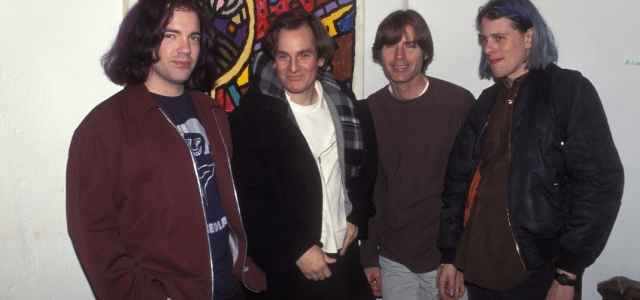
In 2010, shortly before a planned appearance at South by Southwest in Austin, TX, Chilton died of a heart attack at the age of 59. Immediately, a tribute featuring the best and brightest of alternative music was assembled, honoring the substantial legacy of Big Star’s music. This legacy was further evidenced by the performance of a song entitled “Alex Chilton” on The Tonight Show in 2014. The performers in question are the subject of our next section.
The Replacements: Rock and Roll’s Lovable Midwestern Losers (So The Cubs, Basically)
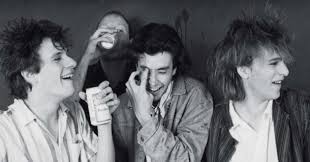
In 1991, Seattle-based Nirvana released their major-label debut, Nevermind. This surprising smash success is largely considered the moment that “alternative music” finally broke through to the mainstream. This ignores the fact that Nirvana had not exactly paid their dues for years; they released only one “indie” album, the excellent Breach. Several years earlier, a Minneapolis-based outfit called The Replacements, affectionately known as The ‘Mats by their fans, were poised to achieve success with their 1985 major-label debut Tim. Their first two albums, released on the tiny local label Twin/Tone, were sloppy, amateurish, and completely genuine. Their third release, 1984’s Let It Be, however, proved to be a stunning tour de force. While goofy, gimmicky tracks like “Tommy Gets His Tonsils Out” and a stomping cover of Kiss’ “Black Diamond” still pervaded, a stunning wealth of maturity and expert songwriting by leader Paul Westerberg made the album a college radio landmark.
The underground success of Let It Be led to a flurry of major label interest. In 1985, The Replacements signed with Sire, and recorded Tim with former Ramone Tommy Erdelyi. Akin to Nevermind, the result was a more polished, radio-ready sound, without sacrificing the uniqueness of Westerberg and The ‘Mats. The storming “Bastards of Young,” the searing “Left of the Dial,” and the gentle, plaintive “Here Comes a Regular” all might have been huge hits- about seven years later. The onslaught of bands in the early 90s masquerading as alternative, from Stone Temple Pilots to Gin Blossoms, owe a clear debt to the ‘Mats. Yet, in 1985, when Madonna, Tears for Fears, and Born In The USA ruled the day, the Replacements’ music was bound to fall to the wayside. Sire tirelessly tried to promote the group, even booking a spot on Saturday Night Live in January 1986. The show could have been an excellent showcase, as the band performed two of Tim’s standout tracks. Instead, the ‘Mats got rip-roaring drunk and performed out-of-tune renditions, complete with Westerberg screaming out a “F-bomb.”
In an interesting twist, the notoriously idiosyncratic Alex Chilton (Mr. Big Star himself) was brought in to produce The Replacements’ follow-up Pleased to Meet Me. Although the sessions went well (Chilton and Westerberg would become close friends), Sire loathed the raw sound, and hired Jim Dickinson to gloss up the proceedings. During the recording, original guitarist Bob Stinson was kicked out of the band for excessive drinking (which is like an original cast member of Saturday Night Live being kicked out for cocaine use). He was replaced by the reliable sideman Slim Dunlap. The resulting album was the slickest record yet, but included such excellent tunes as “Valentine,” “The Ledge,” and even “Alex Chilton,” a celebratory track where Westerberg imagines a fictional world where “children by the millions sing of Alex Chilton.” The album contained not a single radio hit, and the next two records (Don’t Tell a Soul and All Shook Down) were mellow, faceless attempts at reaching the masses. While the former contained a minor pop hit in “I’ll Be You,” neither contained the spirit that made The Replacements one of the best bands of the 1980s.
The band broke up in 1991 following a concert in Chicago’s Grant Park. Ironically, it was the year that previous cult acts like R.E.M., Red Hot Chili Peppers, and Nirvana became mega-stars. The Replacements may have joined them, but they were fated to be the perennial also-rans. In the years following the ‘Mats’ disbanding, Westerberg embarked on a prolific yet often ignored solo career, bassist Tommy Stinson toured with the re-formed Guns ‘N’ Roses, and Bob Stinson tragically died of an overdose, inspiring the heartbreaking Westerberg solo track “Good Day” (1996). On the radio, however, countless artists whose sound betrayed the influence of the rough-cut Minneapolis quartet reached millions of listeners. Jangly, angsty hit singles from groups such as Boston’s The Lemonheads and Minneapolis’ own Soul Asylum revealed a clear debt to Westerberg and his band of talented screw-ups. Buffalo, NY’s The Goo Goo Dolls, who found success with songs such as “Slide,” “Name,” and especially “Iris,” were blatantly Replacements-inspired, sounding as if they listened to ‘Mats ballads “Achin’ to Be” and “Skyway” on an endless loop.
Meanwhile, the profound country influence of the Replacements’ final two records can be heard in the critically acclaimed work of Wilco and Ryan Adams. For years after their demise, fans clamored for a reunion. Drummer Chris Mars has long been estranged from the group, but in 2013, Westerberg and Stinson re-formed the band, and played a handful of festival dates. The shows were messy, amateurish- and the Replacements through-and-through. Since then, the ‘Mats have played a wide-ranging mix of festivals and headlining shows, playing for both middle-aged mega-fans and newcomers wondering what the fuss is all about. Billie Joe Armstrong of Green Day (like Nirvana, a classic case of the mainstream co-opting of “indie” rock) has joined his beloved ‘Mats on several gigs, further revealing the lasting influence of this motley Minnesota crew. As The Replacements perform at festivals alongside Spoon, The Hold Steady, and The Gaslight Anthem, college students everywhere will see how derivative their favorite bands truly are.
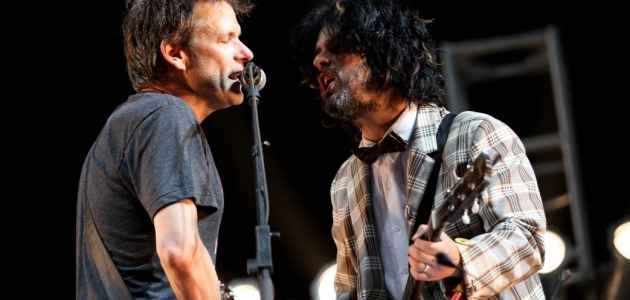
The music that is seemingly the most distinctive often owes a debt to the artists who never sold records, but who inadvertently caused the few people who did purchase the albums to start a band of their own.
Works Cited
Azerrad, Michael, Our Band Could Be Your Life: Scenes From the American Indie Underground 1981-1991.
Little Brown USA, 2001.
Azpiri, Jon. Review: Pieces of a Man. AllMusic.
Dolan, Jon. “The Replacements: The Greatest Band That Never Was.”
Rolling Stone, 2014
Fitzpatrick, Robert. “Gil Scott Heron: An Interview.” The Telegraph, 2010
Fricke, David. “Alex Chilton: A Rock and Roll Life in Reverse.” Rolling Stone, 2010
Simmonds, Jeremy. The Encyclopedia of Dead Rock Stars. Chicago Review Press, 2008
Tyler-Ameen, Daoud. “Gil Scott Heron, Poet and Musician, Has Died.” NPR.org, 2011
What do you think? Leave a comment.
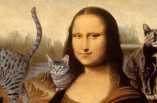
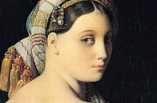
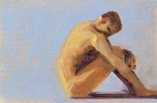

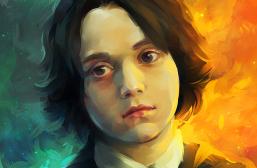
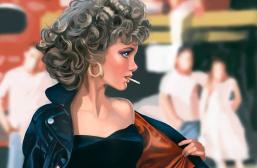
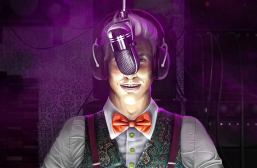
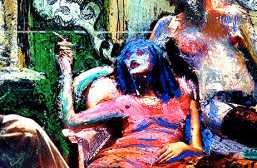


Samuel I enjoyed reading all this relevant information regarding the behind the scene muses for those who take front stage.
These bands sound very good from the way you described them. It is a shame that these musicians were underrated, considering they were competing in a competitive market.
Thanks for this. One of my top 3 gigs ever was the Replacements at King Tuts in 1991. Clearly seriously hungover (my brother saw them in Manchester a couple of nights beforehand where they were absolutely battered) but brilliant.
Very gifted musicians and human beings.
Rap today is just inane posturing and shilling for corporate interests.
You will be missed Gil and your true greatness will be recognised!
G
Great tribute. Have always loved Big Star and Gil’s music.
I when I first heard one of Gil Scott-Heron songs on alternative FM station in Los Angelos in the seventies I felt this guy had enormus talent and was authentic americana. And I still feel that way. He told it like it was from living ( a working class guy with literary talent being real with the truth) as an African-American in the U.S. When I later moved up to the San Francisco Bay Area I went to a protest/rally concerned with the storing of letal bombs at the Naval Weopans Station in Concord, CA. Nuclear bombs were transported to and from this depot. Earlier a serious protester and leader for the cause of No Nukes, Brian Wilson, had his legs cut off by a weopons train moving hard without remorse towards the gate as protesters tried to block entry into the nuclear weopons storage base. The rally I was at must have been in 1988. We were a crowd marching from gate to gate with Gil Scott-Heron as one of our leaders. I remember him as steadfast and serious with brief comments about the military-industrial complex, poverty and war and how this all contributes to racism. The way I remember it was like he was saying it takes a new way of thinking that has to start somewhere and this is as good a place and better than most. I remember it was hot in the summer and as I peeled off he was still at it. Thanks for your gifts Mr. Gil.
“Kiss Me on the Bus”: perfect song. ” On the bus/Everyone’s lookin’ forwards/On the bus/I am lookin’ forward…”
Love that to. ‘Unsatisfied’ , ‘Waitress in the Sky’, ‘Answering Machine’. I was aware of them but they crept under the radar until a couple of years ago. So many great songs they should of been massive. ‘I Hate Music!’
O how I love these bastards.
Ah, my youth is locked up in seeing bands like the Replacements in shabby venues across the US. How I loved them. I hear their songs now and my fifty year old heart aches. Probably from hardening of the arteries, but still . . .
I’m glad I got to see Gil Scott-Heron perform once – I think he will be with me for the rest of my life. A truly great soul and an inspiration.
Met Gil backstage at the Jazz Cafe about 16 years ago. He was exactly as you would expect him. A gentleman. And a legend.
Rest in peace.
I’m glad you wrote this article; I actually never heard of any of these. Great work!
The Replacements have some great stuff, and I recommend everyone check them out. Awesome music.
Let it be is a classic. .
Big Star is such a fantastic and under appreciated band; September Gurls is one of the best pop songs ever written and there three albums in the 70’s were soft rock gems.
Gil did everything with heart, humour and a positive message.
It’s always interesting to see what the roots of influential artists are in any medium. Sixto is a great example.
I love Gill Scott Heron, he song the revolution will no be televised is one of the most underrated song in pop music culture
Looking forward to checking out the music from these bands. I feel rather ashamed I had not known of Gil Scott-Heron in particular, seeing how far-ranging his influence is in the hip-hop and R+B scene.
Your article was very informative and agree that almost all the greats of music owe their success (or at least a generous portion of it) to bands they were heavily influenced by!
What a beautiful article.
Where is our generation’s Scott-Heron?
R.I.P. Gil…
We have yet to truly understand the debt we owe to progressive rock bands such as Yes, Led Zeppelin, Rush, ELP, Grateful Dead, Eagles etc. A lost era that not many people know about these days.
Gil tells his world through music, rythmn and verse.
Wow. This is really inspirational for my current project where I write editorial articles about music from around the world.
Thank you for sharing this article.
Always interesting to learn more on the origins of our music!
Sorry to break it to you but, September Gurls is on Radio City, not #1 Record.
Nirvana’s album is also “Bleach” not “Breach”…..
Very interesting read for music lovers. I appreciate your breadth of genres since each style of music has its own demographic. Each demographic listens to music that they can either relate to or appreciate and you touched on those underground tastemakers in an interesting article.
I consider myself somewhat of a music nerd so this is very impressive! I didn’t know a lot of these artists. nice job!
Big Star is, I think, a criminally underrated band. I have never been able to get into The Replacements, except for Hold My Life. Been meaning to listen to some Gil Scott Heron after mentions and samples in LCD Soundsystem and Kanye West, respectively. Great article.
I would add Roky Erickson to this list. A godfather of psychedelic rock and a staple of the Austin music scene, he was an interesting character who deserves more recognition for his compositions.
This article sheds light on how fame or public recognition does not measure or define the quality of ones work or contribution to society. It’s a shame Gil Scott Heron was not more recognized for his work but your article and more articles of this nature will help his brilliance and talent live on.
Big Star…If ever a band deserved some success but it just never happened. Not financially anyway.
Excellent article. Thanks for paying homage to these important musicians.
More like this please. Very well tempered for both the casual enthusiast and attentive aficionado alike.
Excellent stuff. As a music geek, I reserve most of my love for these unheralded groups (especially Big Star). The beauty is that their music and influence live on despite their lack of commercial success. And what would have happened if these artists had broken through? Wouldn’t the music have suffered because of it? I tend to think so. These artists remain untouched by the machinery, and I envy them for it.
This is awesome, thanks for this. I’ll definitely be checking them out.
A shame these artists were underrated, I enjoyed reading more about some of the muses current artists had.
it is ashame these artists were underrated, I enjoyed reading more about some of the muses current artists had.
Sort of off-topic: from the time of this article’s publication, the Cubs won the World Series in 2016 and thus, lost the loser label.